-crop-770x475.png)
Award-winning animal health microchip ready for commercial trial
VetChip is setting a new standard in animal healthcare through revolutionary biosensor technology. The easily implantable chip monitors the vital signs of animals big and small, providing real-time information to pet owners, farmers, vets and researchers that can be used to prevent illness and improve quality of life. Expressions of interest for their Series A funding round are now open.
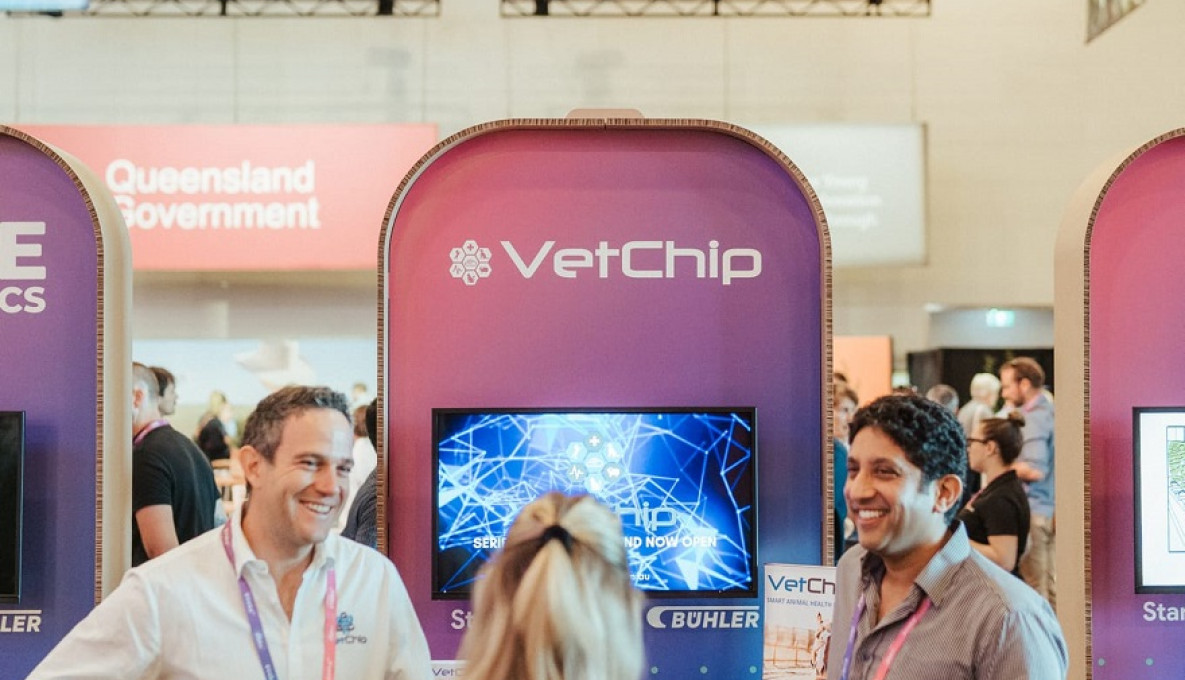
-crop-40x40.jpg) Tim Vetter
Date
24 August 2023
Share
Tim Vetter
Date
24 August 2023
Share
- Share via Facebook: Award-winning animal health microchip ready for commercial trial
- Share via LinkedIn: Award-winning animal health microchip ready for commercial trial
- Share via Twitter: Award-winning animal health microchip ready for commercial trial
- Share via E-mail: Award-winning animal health microchip ready for commercial trial
The award-winning device which allows pet owners, horse owners and farmers to monitor their animal’s health remotely around the clock is about to hit a development milestone, with the company behind the technology ready to launch a commercial trial.
Spearheaded by Fremantle-based veterinarian, Dr Garnett Hall, the VetChip microchip is implanted under the animal’s skin using a similar method to identity chips, and uses biosensors to continuously monitor temperature, heart rate, respiratory rate, oxygenation levels, and activity levels.
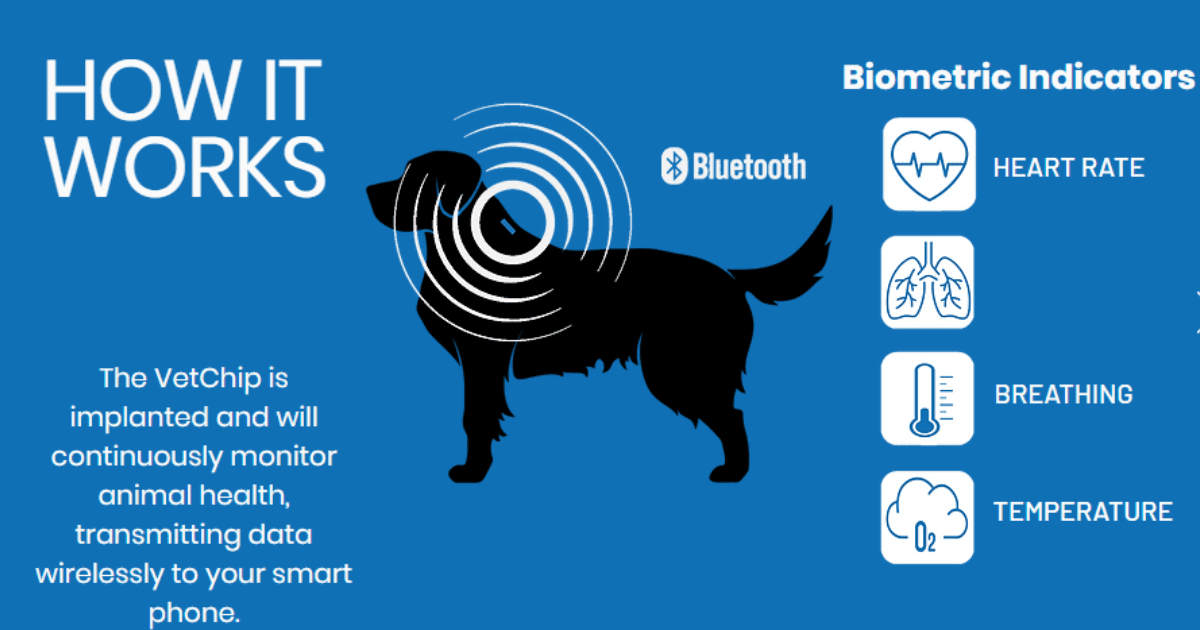
Biometric data collected by the chip is then interpreted by AI software to determine an animal’s normal health status and detect abnormalities as they occur, which is provided to owners through a connected phone app. The chip can also enhance the welfare and performance of horses by monitoring their health during training and recovery.
After a successful seed round in 2021 in which the company raised $2 million, VetChip is now looking to raise $5 million through AgriFutures growAG., an online agrifood innovation platform which connects users to investment opportunities, research and expertise from Australia and around the world.^
When capital raising is complete, the funding will primarily be used to conduct a commercial trial of VetChip’s world-first technology over the next 18-24 months.
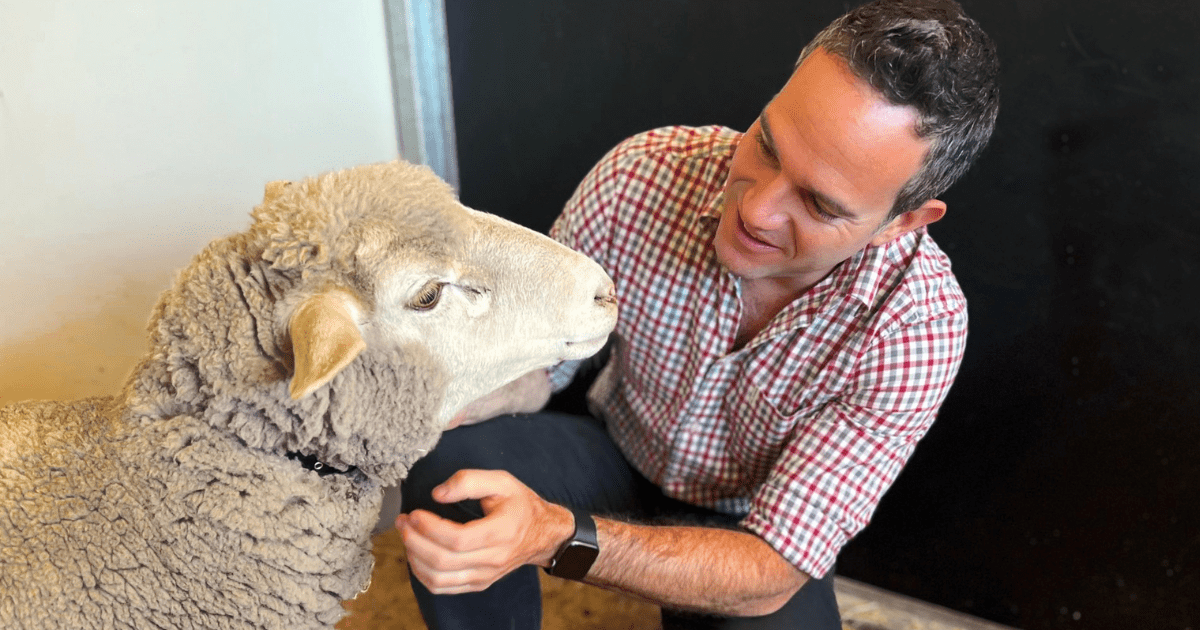
AgriFutures growAG. Senior Manager, Arianna Sippel, said it was an exciting opportunity to be involved with the future of animal health monitoring.
“This is truly world-leading technology which has the potential to change the lives of animals and their owners.” Ms Sippel said.
“VetChip has refined the technology to the point of commercial readiness, and with the right investment partners they are now ready to take that next step.”
Recently, VetChip was announced as the Australian winner of Nestle-Purina’s global Unleashed Pet Tech Accelerator Program and was selected as one of 12 recipients of the latest Western Australian Government’s Asia Access Grants.
“We’ve had a lot of attention from industry and global animal health companies. If we can demonstrate that our technology has commercial potential, then the sky’s the limit for its potential adoption,” said Dr Hall.
“A big focus moving forward is training our AI algorithms to assess health, welfare and performance. The rapid advancements in AI are really exciting, and we believe that our technology will be an essential component of maximising the impact of AI in the veterinary world.
“Australia needs to invest in this sort of technology development if we’re really going to lead the world in smart agriculture and animal welfare.”
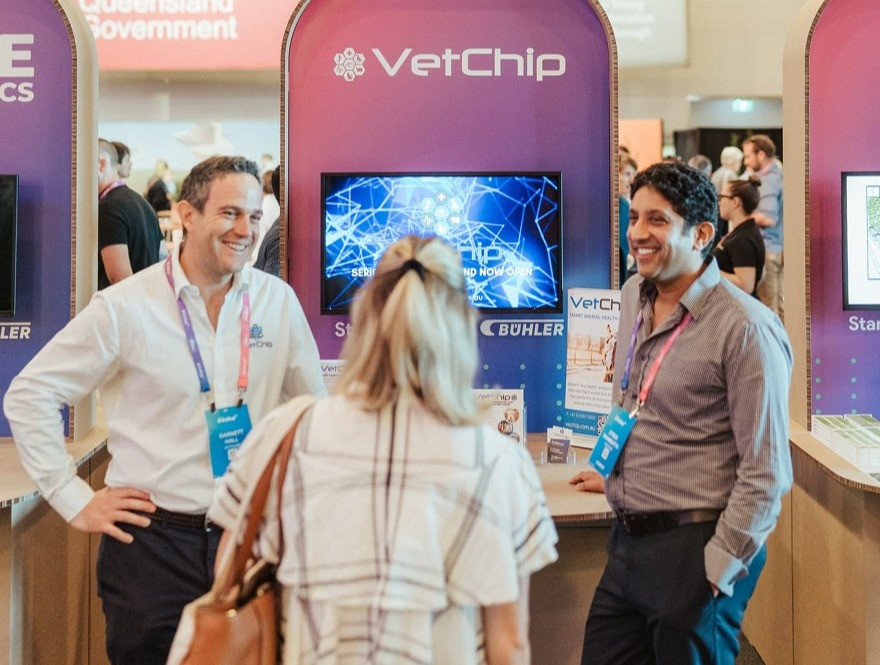
Dr Hall said the technology gives owners peace of mind they are providing their animals with optimal quality of life.
“It effectively gives these animals a voice, because they can’t tell you when they’re feeling unwell,” he said.
“VetChip has also developed an API link to existing health record technology, allowing vets to make more informed decisions based on an animal’s historical data.
“It also functions as an identifier chip, so eventually we envision animal owners being given the choice of the standard microchip, or VetChip which does ID and health monitoring.”
The human health revolution inspired by wearable technology was part of Dr Hall’s inspiration for the device.
“It was around the time Fitbits were becoming popular, but I could see that technology wasn’t going to be suitable for animals,” he said.
“Several companies have developed wearable health monitors for animals, such as ear-tags or collars, but animals either chew them off or they just get destroyed out in the elements. They also lack the ability to detect many important biological traits that an internal solution can."
“VetChip will retail for around the same price as the wearable collars, and substantially cheaper than any device currently used for livestock health monitoring.”
The technology is equally suitable for livestock like horses, cattle, sheep and pigs as it is for domestic pets.
“The hardware is exactly the same, but the AI model’s training and output can be customised depending on the species,” Dr Hall said.
“This technology can change how animal management happens, and link with smart farm projects where monitoring the animals is often the biggest limitation.”
To learn more about this investment opportunity or to get in touch, click here.
^This investment opportunity is only for professional and sophisticated investors as defined in the Corporations Act 2001 (Cth). The content of this opportunity is intended for use by persons having professional experience in matters relating to investments and must not be acted or relied upon by any other person including, without limitation, retail clients.
Related highlights
Explore all highlights-crop-850x675.png)
Looking for engagement?
Showcase your commercialisation opportunity today.
Talk to our team to discuss how growAG. can connect your innovation to industry.
Have questions? Find answers to our most frequently asked questions on research projects, commercial opportunities, organisations and more.
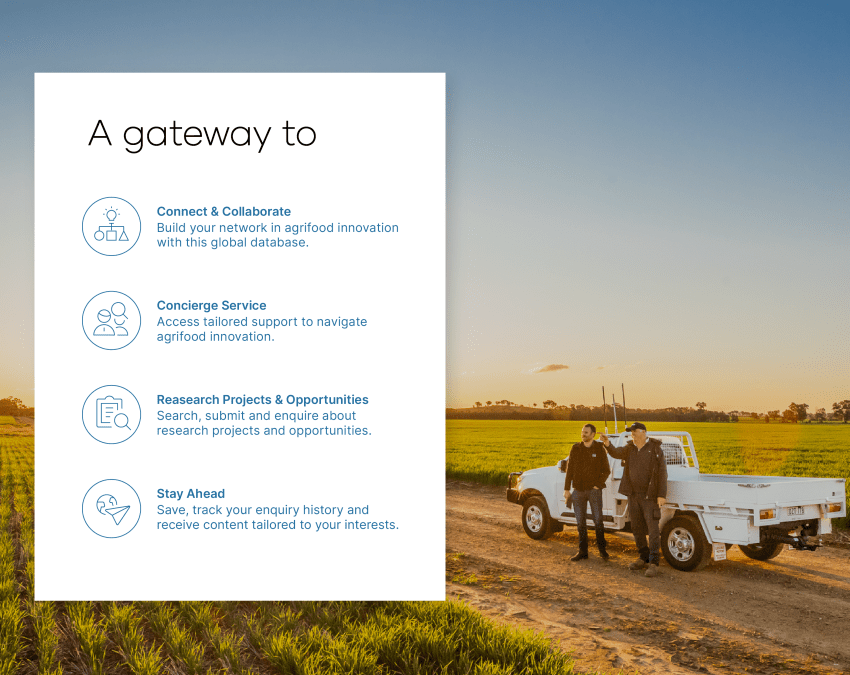

-crop-770x475.png)
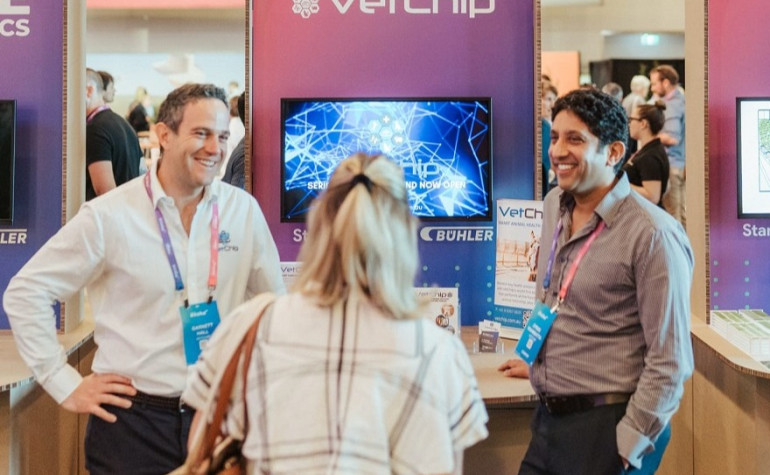
-crop-770x475.png)